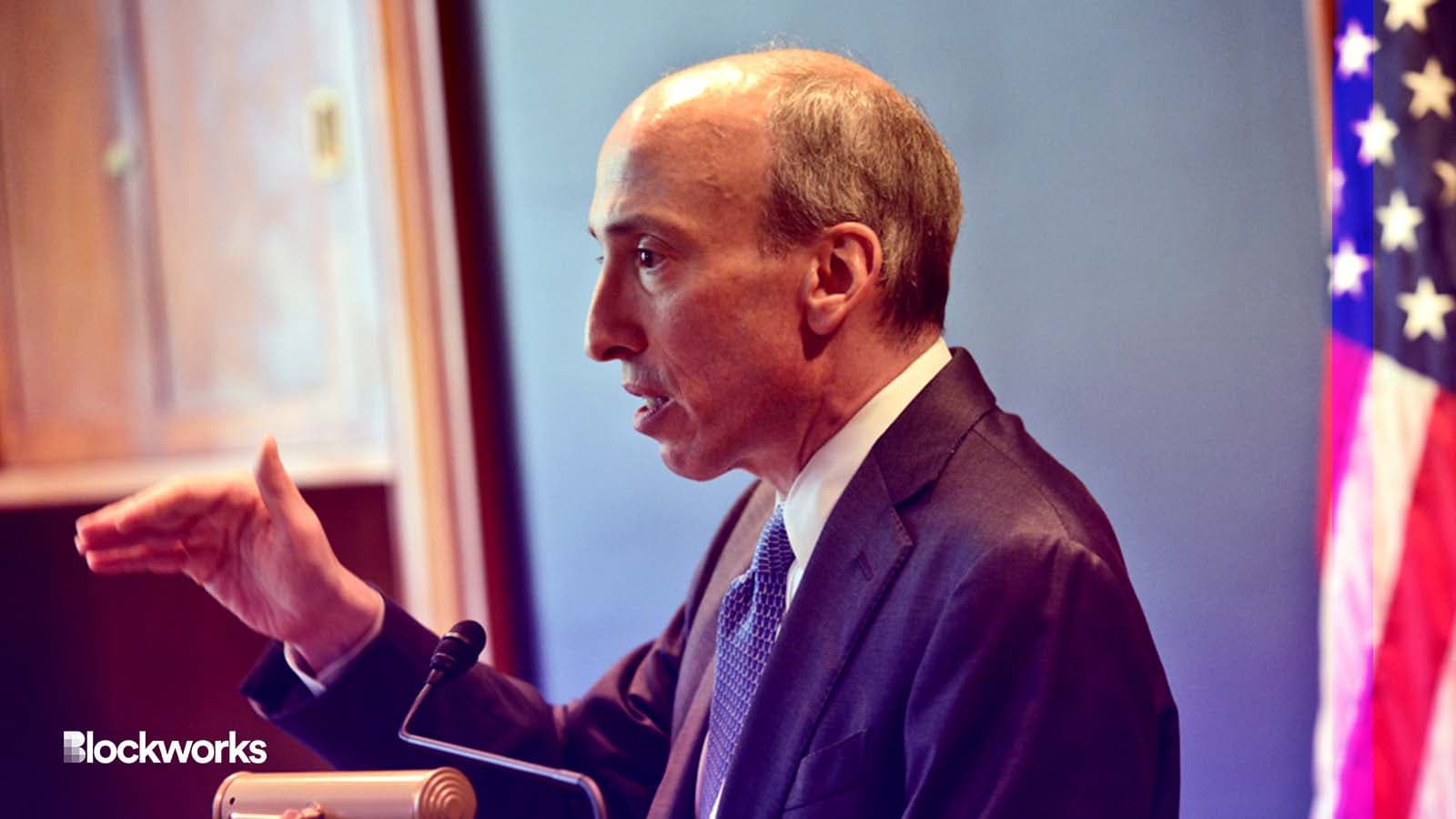SEC: Gemini, Genesis Blended Deposits, Ran Afoul of Securities Law
The prominent crypto companies were already up against heaps of financial troubles before getting slapped with SEC violations

SEC Chair Gary Gensler | Source: Third Way "Gary Gensler" (CC license)
Mark Genesis and Gemini down as the latest crypto companies accused — and charged — by the SEC of improperly handling customer funds shuffled between the two firms.
In a Thursday complaint, the US securities regulator alleged that Genesis “pooled” digital assets from investors in Gemini’s yield-bearing investment suite, Gemini Earn, with funds from other customers in a somewhat complex and purportedly improper lending arrangement.
Both companies are accused of violating federal financial law, in part, because of that setup, which the SEC claimed involved billions of dollars of digital assets, “principally from US retail investors.” The mechanism, per the regulator, resulted in a number of unregistered crypto securities.
Though the SEC’s charges are unique to Genesis and Gemini, the allegations appear to bear at least one key resemblance to those against Sam Bankman-Fried’s Alameda Research and FTX: Customer funds were improperly mixed and mingled, resulting in “significant harm.” And the charges, in one more commonality, claim that harm was intensified by Genesis’ November 2022 move to freeze withdrawals.
Purported retail harm center stage
Much of the regulator’s complaint is centered around allegations that both companies caused significant damage to retail customers — with Genesis “otherwise engaged in crypto asset transactions with large institutional and other accredited investors.” Social media pushes undertaken by Genesis and Gemini fueled retail exposure and amplified investor pitfalls, the SEC said.
Genesis then is said to have deployed the assets, primarily by lending them out to those same institutional borrowers — in a bid to drum up revenue. It was not immediately clear if those alleged efforts deepened in tandem with crypto’s ongoing bear market.
The measures also included revenue that became requisite to divvy out interest to Gemini investors, the original source of the funding, according to the complaint.
SEC says billions of dollars in balance
As a requirement to participate in the exchange’s Earn program, Genesis and Gemini allegedly enforced a requirement for customers: to enter into a tri-party “Master Digital Asset Loan Agreement.”
The arrangement, in the SEC’s estimation, boils down to Earn customers coughing up crypto to Genesis with Gemini purportedly stepping in as an “issuing agent.” Gemini “received, pooled, deployed, and paid interest on investors’ assets,” the regulator said.
Through the first quarter of 2022 alone, Gemini allegedly raked in about $2.7 million in fees accordingly. Through October of last year, effective interest rates for Gemini’s yield-bearing customers clocked in as high as 8.1%, per the regulator, adding that Gemini’s fee on assets “tendered to Genesis” ranged from .06% to 4.3%, varying with the type of cryptocurrency in question.
Hundreds of thousands of investors were affected, according to an SEC statement.
The regulator claims that Genesis, a subsidiary of crypto conglomerate Digital Currency Group (DCG), from December 2020 onward struck a deal with Gemini to offer the exchange’s customers an option to earn interest on their deposits.
By February 2021, Genesis and Gemini had allegedly begun offering Gemini yield-bearing digital assets products to retail investors, namely in the US, Hong Kong and later Singapore, with customers tendering digital assets to the lender. Gemini facilitated those transactions, per the US financial watchdog.
As of November 2022, roughly 340,000 retail investors, mostly residing in the US, had digital assets invested with Genesis through Earn.
Latest Gemini wrinkle
Gemini co-founder Cameron Winklevoss levied accusations against DCG CEO Barry Silbert and Genesis for “false statements and misrepresentations” last week revolving around Genesis’s solvency and financial health. Winklevoss blames DCG and its subsidiary for harming those hundreds of thousands of retail investors.
The SEC says that the main investment play in question — Gemini Earn — constituted an offer and sale of securities under US law and should have been registered with the regulator.
“Crypto intermediaries need to comply with our securities laws,” SEC head Gary Gensler tweeted on Thursday. “This protects investors. It promotes trust in markets. It’s not optional. It’s the law.”
Gemini, the centralized cryptocurrency exchange founded by the Winklevoss twins, terminated its interest-bearing program on Wednesday after Genesis allegedly failed to return $900 million of outstanding assets.
“While the Gemini Earn program has been terminated, both Genesis and Gemini continue to do business in the crypto asset industry,” the SEC said. Genesis had intended to dive back into related lending, the regulator added.
Gemini, meanwhile, “continues to hold billions of dollars’ worth of crypto assets on behalf of retail investors in connection with its trading platform and other activity in this industry.”
Both Gemini and Genesis remained in a position — and planned to — to violate the same SEC requirements if they were not “restrained” from doing so again, the regulator said.
The SEC is after permanent injunctive relief and disgorgement of ill-gotten gains, plus prejudgment interest and civil penalties. Representatives for both firms did not immediately return a request for comment.
Michael Bodley contributed reporting.
Updated Jan. 12, 7:03 pm ET: Adds additional context of allegations relating to Genesis and Gemini’s lending to institutional borrowers and provides additional details of accusations of retail investor harm.
Get the news in your inbox. Explore Blockworks newsletters:
- The Breakdown: Decoding crypto and the markets. Daily.
- 0xResearch: Alpha in your inbox. Think like an analyst.






